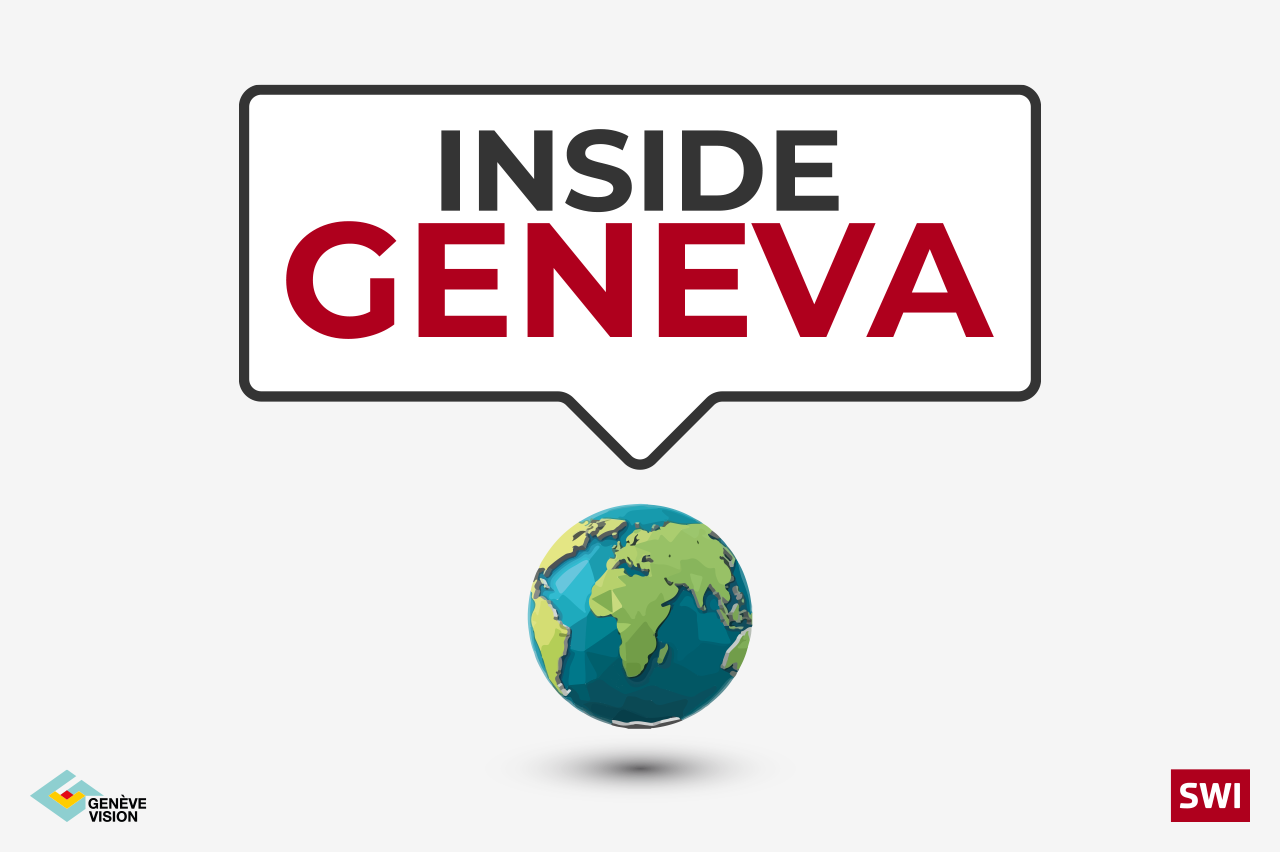
Reimagining the United Nations
I had the great pleasure to be back in Geneva last week, for a very special live recording of our Inside Geneva podcast. In ‘”normal” times our podcast participants huddle round the table in a small studio in the Palais des Nations, but Covid-19 has put a stop to that, and increasingly I, like you I imagine, am learning the joys of working from home, and virtual discussions.
But for months we had been planning a live event, hosted by our partners at Geneva’s Graduate Institute, and last week that finally went ahead. Under strict hygiene restrictions of course; just 20 people in the vast auditorium, and the four panelists carefully spaced two metres apart. But, thanks to all who tuned in, our online audience more than made up for that empty hall. And, as it turns out, we managed to have our event just in the nick of time. On Sunday Geneva announced its own “semi-confinement” with a ban on groups of more than five people.
Our topic for that live podcast was one I’ve spent a good part of this year researching and reflecting on: The United Nations at 75. I am unable to imagine a world without the UN; it has accompanied me all my life. But still, as it marks this milestone, it is useful perhaps, not to unimagine the UN, but to try to reimagine its future.

More
Inside Geneva: The future of the United Nations
A better world?
The organisation has expanded massively since its creation in 1945. Let’s not forget that back then, it was viewed primarily as a conflict prevention institution; President Harry Truman ambitiously described it as “a victory against war itself…a solid structure upon which we can build a better world”.
The UN of course has not managed to prevent war any more than its predecessor the League of Nations did, although I do think, having covered seven years of Syria peace talks, that we should give it credit for trying.
But fast forward from 1945 to 2020, and we find a UN that involves itself in all sorts of areas, from gender and racial equality, to public health, to the rights to food, housing, and education, and many other things.
Some might say the UN’s reach is too long. Others, like graduate student Mallika Goel, our youngest panelist discussing the UN’s future, sees these as core issues for the UN. Human rights were addressed in 1945, she points out, and “gender rights are human rights. You can’t just narrow down the scope of the UN depending on what’s convenient for you. You have to evolve with the times.”
But our regular analyst Daniel Warner sees it differently. He believes the UN should “focus on what it has as a comparative advantage” and that, he suggests, is conflict resolution.
Reform needed
What all our panelists agreed on however, was that reform of the UN is urgently needed. Most in need of modernisation: the UN Security Council, whose structure, Professor Mahmoud Mohamedou points out “does not make sense today in 2020. It is a snapshot of the power relations of 1945”.
Persuading the five permanent members of the council (Second World War victors China, Russia, the UK, France, and the USA) to give up their permanent seats and their vetoes will be difficult though, perhaps impossible.
‘An inevitability about the United Nations’
To hear more of our conversation, please do tune in to the podcast. Our discussion ranged from questioning whether the UN is fit for purpose (coping with the pandemic for example), to calls for the UN to be more inclusive of civil society, and of the younger generation.
We also explored the backroom dealing that allows the US to always lead the World Food Programme, and the UK, more often than not, to be in charge at the UN’s Office for the Coordination of Humanitarian Affairs (OCHA).
There are many more questions we could all ask; when will there be a female UN Secretary General? Or when, if ever, will those ambitious sustainable development goals (which include eradication hunger and poverty, achieving universal education healthcare and gender equality) be achieved? None of them are currently on target.
One very interesting observation came from the last section of our podcast, when we took several questions from our audience. Some were highly constructive suggestions about how the UN could reform and become more inclusive, while others advised more empowerment for regional groups. But none, crucially, questioned the very existence of the United Nations.
So, 75 years on, although we have big questions about this enormous, flawed, but fundamentally valuable organisation, it seems we cannot imagine our world without it. Or, as Professor Mohamedou put it, “there is an inevitability about the United Nations”.

In compliance with the JTI standards
More: SWI swissinfo.ch certified by the Journalism Trust Initiative






























You can find an overview of ongoing debates with our journalists here . Please join us!
If you want to start a conversation about a topic raised in this article or want to report factual errors, email us at english@swissinfo.ch.